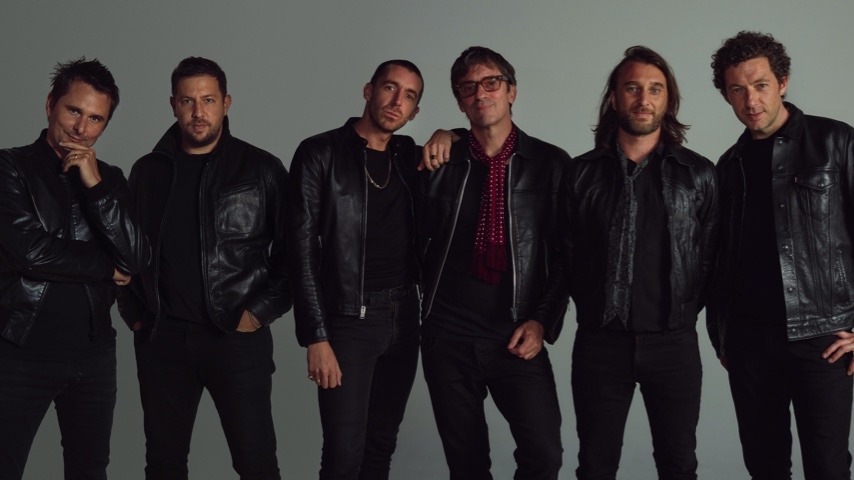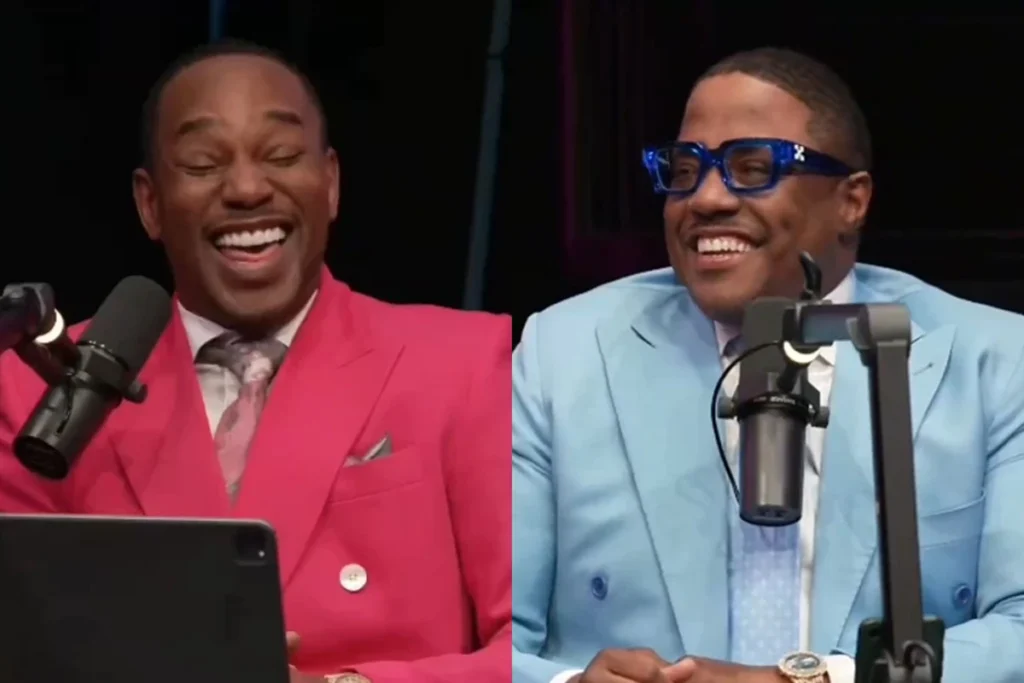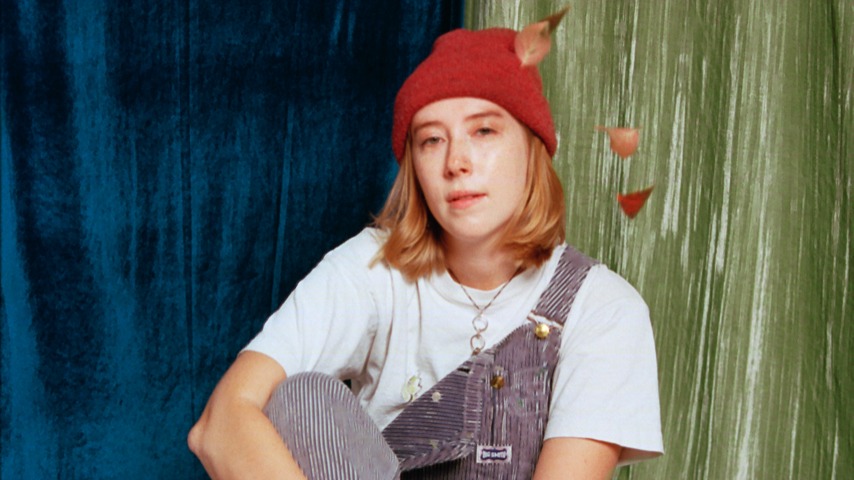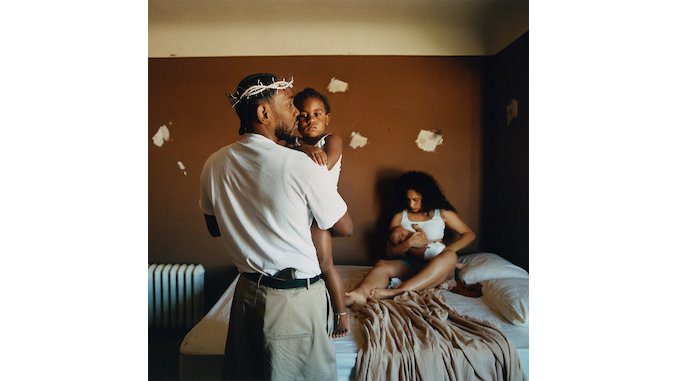It’s probably the last thing U.K. rock fans were expecting in this constrictive post-pandemic age, but it happened nonetheless, starting in Hollywood, of all places: A surprise supergroup of musicians coalesced as The Jaded Hearts Club, initially just to play a one-off, all-Beatles-songs birthday-party gig for expat Jamie Davis, who once ran Graham Coxon’s Transcopic Records imprint and Ark Recordings. Next thing the musicians knew, they were performing a more varied covers repertoire last year at London’s 100 Club, to benefit the Shooting Stars Children’s Hospice via a limited white-vinyl-and-T-shirt release, then tracking an actual eponymous album—issued last month—featuring nothing but vintage soul and R&B covers. Although some of its members might not be as well-known Stateside as they are overseas, the JHC is truly an all-star collective, with Davis on guitar, Blur guitarist Coxon, The Zutons’ Sean Payne on drums, Matt Bellamy from Muse (playing bass and producing), and Jet’s Nic Cester sharing lead-vocal duties with Miles Kane, an artist renowned in Britain for his three solo albums and another two with Arctic Monkeys singer Alex Turner as The Last Shadow Puppets. The Zutons’ Abi Harding added necessary sax flourishes to the sessions.
“Everyone in this band is so talented, it’s ridiculous,” marvels Kane, 34, who has a new fourth solo set already recorded and ready to go. “Matt, Graham—their musicianship is second to none, and to me it’s just mind-blowing. And I just loved how encouraging they were, especially with me. They were very happy to take a backseat and let me be the frontman, and they were all just lovely guys.”
He sighs, pausing to address the white elephant in the room. “I know, it’s a very strange thing to happen right now, right? But what a great buzz this is, and what a lot of fun it’s been.” In a desire to raise his profile in America, where he cut his 2011 Colour of the Trap debut in San Francisco (featuring his longtime supporter Noel Gallagher on one song, “My Fantasy”), Kane spoke with Paste from lockdown in his native London about how these JHC Avengers assembled.
Paste: Out of curiosity, since you’ve been confined to it for several months, how is your house decorated? And who else Is staying with you?
Miles Kane: I live alone. And obviously, I’ve finally been able to see my friends recently. But beyond that, I just live alone—that’s what I do. And I’ve got a vintage “Our ManFlint” poster on one wall, a big Paul McCartney framed picture, some ’70s globe speakers, and there’s a nice white marble table. It’s just a cool little vibe, a real rock-and-rolling one. And I’ve just been watching a lot of cookery shows, to be honest. I just love watching cooking shows—that’s all I do in my spare time. And I’m more into the Master Chefs, that kind of thing, or the Food Discover channel. That’s what I’ve been passing my time with. And I do enjoy cooking myself, although I should be a lot better at it. So for hobbies, I just love music, cooking and boxing—they’re my three the things, the things I do in life.
Paste: Suddenly tons of artists are into boxing—Elle King, Mike Ness, the duo Sleigh Bells. How and why did you pick it up?
Kane: I got into it about eight years ago, really, and I just started doing a bit in the gym. But I’m a big fan of it anyway. I love to watch it. So that’s my favorite sport as a fan, as well. I don’t know what it is, really. But eight years ago, something switched inside me and I got really drawn into it. I can’t explain it. I haven’t gotten a speed bag yet, but I did get a spar bar, but it’s dismantled now in the spare bedroom. So it’s not getting a lot of action right now.
Paste: Ness always said that once you’ve mastered boxing, it’s an aura that people can sense when you’re walking down the street, and they instinctively leave you alone.
Kane: Yeah. Maybe there’s a subconscious projection thing with that, because you never know someone else’s ability, really, but you certainly don’t want to test it out and take that chance, because sometimes it’s the people that you don’t think have it—they’re the ones who’ve got the skill. And I had a few scraps growing up, but I was never a fighter. All my friends were, but that was never my style. But I think the older you get, the more pathetic you find actual fighting, unless it’s done in the proper professional way.
Paste: What kind of kid were you, exactly?
Kane: Well, when I hit the age of 10, I discovered Oasis. And that’s when I really got into music and realized that that was what turned me on the most. And obviously, before that it stemmed from The Beatles and Motown, because stuff like that would always be getting played around my mom’s house. But from seeing Oasis—and just seeing that style of haircut and and clothes—was where I got into that stuff. And it was quite different at the time, especially where I was from [Meols, a tiny village on England’s Northern coast]. To have your hair like that, even at the height of the Britpop era, was really uncool, so when you started growing our hair at 13, 14, 15 there, you used to get the shit ripped out of you, constantly. Today, I don’t think it’s as bad as it was—I think minds are opening up a bit. But in those small towns, there was this prejudice against anyone who wanted to break out from the norm. But weirdly, that gives you a fire in your belly, enough of one to be like, “Fuck you!” Even though you don’t know it at the time.
Paste: I’ve been rediscovering The Beatles’ Hard Day’s Night film recently. It captures this innocent joie de vivre and youthfulness from that era—and how smart and funny they were—in a way that’s almost magical.
Kane: Yeah. And you can’t beat that feeling. Because the things that I love are great songs and good humor, and for me, The Beatles hit both of those nails on the head perfectly. So when they’re serious, you believe it, and when they’re joking, you believe it, too. And it’s not joking in a way that’s forced—it’s not like a carefully planned thing. And a lot of that spontaneity has been lost over the years, I find. It’s all just gotten a bit…a bit…uptight over the last few years. But I love The Beatles—they were like Monty Python with guitars, basically.
Paste: But you’ve recorded, toured and basically gotten along with some of Britain’s most mercurial personalities. Because Alex Turner and Noel and Liam Gallagher do not suffer any fools gladly. What’s you secret?
Kane: Maybe it’s my nudge-nudge, wink-wink, Monty Python sense of humor. But everybody knows that me and Alex are like brothers. And whenever I met Liam when I was younger, we always had fun. I mean, we don’t hang out a lot together, but whenever we do, it’s always cool. So I don’t know—you’d have to ask them. But for me, it just feels cool, just the same as it does with any of my mates. And with the people that I surround myself with, we have own little energy, and we have our own little gang, and I don’t really let anyone else in. So it’s really got to be worth it to me to let someone else in, because I’ve been through the thing where you’re young and you’d chase things around and have millions of friends, when you’re going out and getting introduced to the beautiful people and all the finer things in life. But you’ve got to go through that stuff to come out of it again. Weirdly, you go from nothing to having a bit of money and you get experience and all that stuff, and it shapes you, it really does. But to come out the other side? Now I feel more centered, much calmer, and the people I still have around me are people that I’d die for, really. And I think that’s important. My group of mates is like family, and they’re people you wouldn’t know, really, because they’re not necessarily musicians. But it’s a really nice little gang.
Paste: How did Jamie find you then?
Kane: Talking of gangs will segue quite nicely into this, the Jaded Hearts thing. Because again, when I was living in L.A. for awhile, I knew Sean from The Zutons, because when I first started in a band as the guitarist in the Little Flames, we’d support The Zutons because they were from Liverpool. So I knew Sean since I was 17, and when I moved to L.A., Sean moved there not long after that, and he knew Jamie. And I’d never met Jamie, but whenever I’d go see Sean, he was with Jamie, so we became close friends over there, because whenever you’re in a different country, you may open your mind up to new people, but you don’t end up meeting a lot that you actually click with. But I definitely had that connection with Jamie. So that’s how it started, really. We just became mates, and he knew Matt and the other lads in the band. So he is the core of the whole thing, and then we all came together as a pack. And whenever we got together, there’s been an excitement and a calmness and a warmth and a respectfulness that has made it into what it is today, And I don’t think any of us would have thought—just from doing Jamie’s birthday party in L.A.—that this would have gotten so big. But Jamie called me for the first one and said, “I’ve got Matt doing it, and I’ve got Sean, and Matt’s playing bass.” And I just said, “I’m the singer. If you’re doing Beatles songs, then I’m your man.” So that’s how it started, and from there it’s grown into what it is now, although we’ve only done a handful of gigs so far.
Paste: And this also answers the question,’Say—whatever happened to those guys from Jet?’
Kane: Yeah. Nic was in London for a week recently, so I had him ’round for dinner a couple of Saturdays ago and we watched the boxing match that was on TV. And Nic is such a lovely guy, and we’ve become good friends through this project. And I think he’s got one of the greatest voices—his voice now is so incredible, I’m just in awe of him. So to share the vocal duties with him is fine by me. His brother Chris, the drummer in Jet, sang too in that band, but someone should really make a soap opera about Jet—there are so many incredible stories.
Paste: But The Jade Hearts Club started you off on the album with a cover of The Isley Brothers’ “Nobody But Me”?
Kane: Exactly. And I remember when we were all talking about what songs we wanted to do, and were were batting around who was going to sing what, that was the first song that I actually sang for the album. And I always loved that song anyway, but I think our version of it is something really fun and exciting. But Motown and Northern Soul was really big over here, even going back to The Beatles—it was all the records from America that really influenced them and I think it had a lot to do with the ships. All the vinyl from America used to come into port in Liverpool, and they would get ahold of those records there first, even before London. So that’s how that soul scene started more up North than in London, and people used to travel from down here just to go up there and be part of it. So Northern Soul was kind of underground, and any scene like that is just magical, isn’t it?
Paste: One thing is rather unusual about your career, though. Just like Kasabian — who are stadium-level superstars in England, you’ve never quite caught on in America, right?
Kane: Well, it’s because of this: Any label that I’ve ever been on just would not release my album in America, to be honest. And it was frustrating, because I was always up for it. And obviously, I know touring there is expensive, but I’d say, “Look — I’ll just go and do the acoustic thing if I have to.” I was always willing to go there for sure, and I still am now. But I’ve just never had the chance. I mean, I’ve never even done one solo gig in America! And even with the Shadow Puppets, I didn’t do too much—there was just a handful of gigs each time. But I’ve just finished a new album, and it’s real Motown-ish and soulful. It’s the Jost cohesive album I’ve ever done, because I always wanted to go down that Motown road, so it’s got that vibe with some surf and Link Wray guitar—it’s so me, if that makes any sense. It’s my fourth one, so I’d like to come over there and finally do dome gigs. Because I think I really hit this one out of the park, and I think people would really dig it there, you know? So hopefully, after the Jaded Hearts Club, there might be a core audience for me to go over there and play for. But I don’t know. I could go over there, and just one person will turn up to see me. I truly have no idea. So it’s down to you to make this happen!




